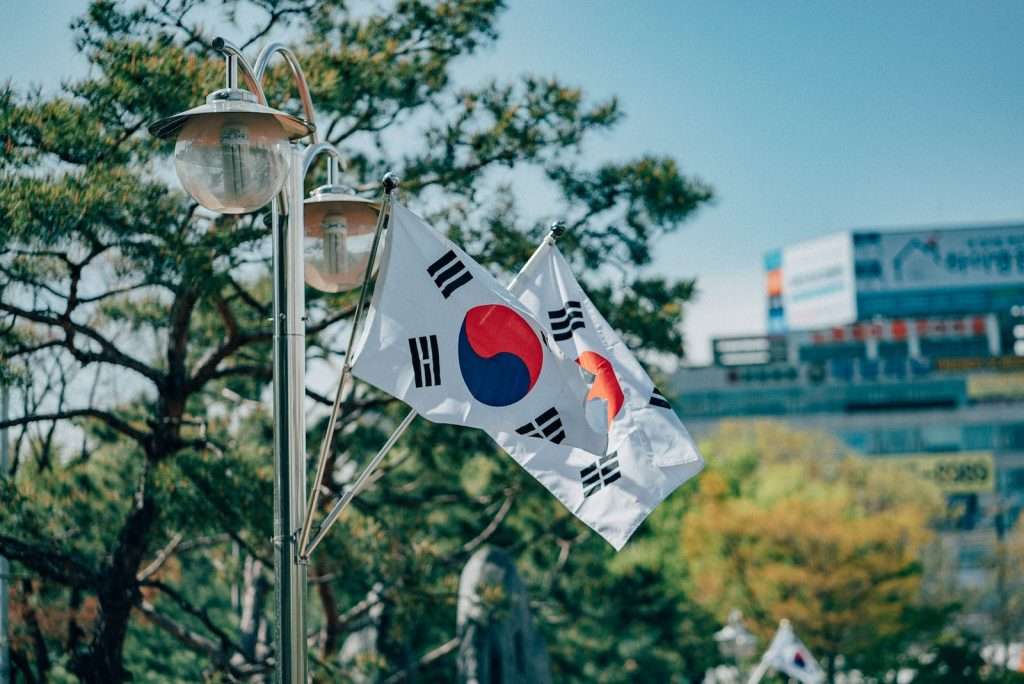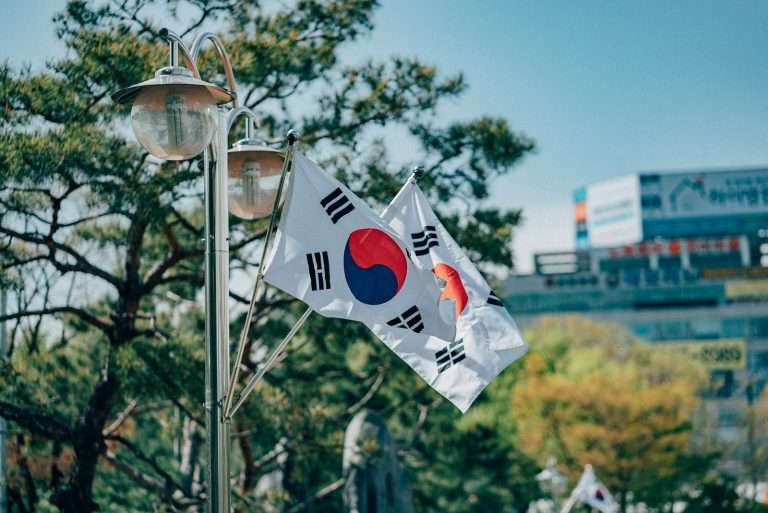Welcome to the land of dazzling skyscrapers, ancient temples, tantalizing cuisine, and a vibrant culture that seamlessly combines tradition and modernity. South Korea, a fascinating and diverse destination, beckons travelers from every corner of the globe. But as you embark on your journey to this extraordinary country, let’s take a moment to consider the importance of responsible travel. In this article, we’ll uncover the secrets to traveling sustainably through South Korea, ensuring that your adventures not only leave a lasting memory but also make a positive impact on the environment and local communities. So, fasten your seatbelts, grab your eco-friendly backpack, and get ready for an unforgettable voyage into the heart of South Korea, where sustainable tourism takes center stage.
Table of Contents
- Be a Responsible Traveler: Discover the Wonders of South Korea while Protecting its Beauty
- Preserving Cultural Heritage: A Guide to Respectful Interactions in South Korea
- Eco-friendly Transportation: Navigating South Korea Sustainably
- Support Local Initiatives: Responsible Shopping and Eating in South Korea
- Reduce Waste, Embrace Sustainability: Tips for Responsible Accommodation in South Korea
- Enjoy the Outdoors Responsibly: Eco-tourism and Nature Preservation in South Korea
- Ethical Experiences: Making Responsible Choices with South Korean Tour Operators
- Respecting Wildlife: Guidelines for Wildlife Viewing in South Korea
- Protecting Marine Life: Responsible Beach and Water Activities in South Korea
- Leave No Trace: Minimizing Environmental Impact in South Korea’s National Parks
- Give Back to the Community: Participating in Sustainable Tourism Projects in South Korea
- Q&A
- Key Takeaways

Be a Responsible Traveler: Discover the Wonders of South Korea while Protecting its Beauty
Embarking on a journey to South Korea is not just about exploring its rich heritage and indulging in mouth-watering delicacies; it’s also about being a responsible traveler. Let’s discover this enchanting destination while ensuring that we protect its awe-inspiring beauty for the generations to come.
1. **Respect the Environment**
- When hiking the breathtaking trails of Seoraksan or exploring the lush landscapes of Jeju Island, ensure you follow designated paths and refrain from littering. Let’s keep these natural wonders pristine.
- Bring a reusable water bottle and avoid wasting plastic. South Korea has an excellent tap water system, so refill whenever you have the chance.
- Take public transportation or walk whenever possible to minimize your carbon footprint. The efficient subway system in Seoul and reliable bus network across the country make it easy to get around sustainably.
2. **Preserve the Culture**
- Be mindful and respectful when visiting temples, palaces, and other cultural sites. Follow any dress code and guidelines provided, maintaining the sacredness of these places.
- Support local artisans and businesses by purchasing handmade crafts and souvenirs. This not only allows you to take home unique mementos but also contributes to the local economy and preserves traditional craftsmanship.
- Take part in cultural experiences, such as hanbok rentals or tea ceremonies, to appreciate and understand the rich heritage of South Korea. Always remember to ask questions and engage with locals respectfully.
3. **Engage with Wildlife Responsibly**
- When venturing into South Korea’s stunning national parks or encountering wildlife, keep a respectful distance. Appreciating animals in their natural habitat without disturbing or feeding them ensures their safety and wellbeing.
- Do not support or participate in activities that exploit animals, such as visiting establishments that promote animal cruelty or offer unethical wildlife encounters.
- Consider volunteering at local organizations dedicated to protecting South Korea’s wildlife and natural environments. Your contribution will make a meaningful impact on conservation efforts.
Preserving Cultural Heritage: A Guide to Respectful Interactions in South Korea
When visiting the beautiful country of South Korea, it’s essential to be mindful of its rich cultural heritage and engage in respectful interactions with its people. By embracing sustainable tourism practices, you can make a positive impact on both the environment and the local communities you encounter. Here are a few tips to help you travel responsibly and gain a deeper appreciation for South Korea’s cultural treasures.
1. Dress Appropriately
In South Korea, modesty is highly valued, especially when visiting religious sites or traditional villages. Dress conservatively, covering your shoulders and knees. Remember, respect and cultural understanding go hand in hand.
2. Learn Some Basic Etiquette
Politeness is deeply ingrained in Korean society, so it’s worth familiarizing yourself with a few customs. Bow slightly when greeting someone, and avoid addressing people by their first names unless they explicitly give you permission. Taking the time to learn a few common phrases in Korean, such as “hello” (annyeonghaseyo) and “thank you” (gamsahamnida), will also greatly enhance your interactions with locals.
3. Support Local Businesses
When indulging in the local cuisine, seek out small, family-owned restaurants known as “hanjeongsik.” These establishments serve traditional Korean dishes and are a culinary adventure in themselves. By supporting these businesses, you contribute directly to the local economy and help preserve the authenticity of South Korean food culture.

Eco-friendly Transportation: Navigating South Korea Sustainably
1. Opt for Efficient Public Transportation
- Travel like a local by utilizing South Korea’s extensive network of buses, subways, and trains.
- Take advantage of the T-money card, a rechargeable transportation card, for seamless journeys across various modes of public transport.
- Explore bustling cities such as Seoul and Busan effortlessly while significantly reducing your ecological impact.
2. Rent a Bicycle to Discover Hidden Gems
- Immerse yourself in the local culture as you pedal your way through picturesque towns, breathtaking coastlines, and serene countryside.
- Indulge in the beauty of South Korea’s charming landscapes by renting a bicycle from various rental spots, including bike sharing programs.
- Discover hidden gems off the beaten path, all while engaging in an eco-conscious mode of transportation.
3. Embrace Sustainable Guided Tours
- Join eco-friendly guided tours that prioritize sustainability and respect for the environment.
- Choose tour operators who promote responsible transportation options, such as electric vehicles or organized hiking trips, to explore national parks.
- By partaking in these sustainable tours, you’ll not only witness South Korea’s beauty but also contribute to preserving its natural wonders.
Support Local Initiatives: Responsible Shopping and Eating in South Korea
South Korea is a fascinating country full of rich culture and mouthwatering cuisines. And while exploring this beautiful nation, why not make a positive impact by supporting local initiatives? Responsible shopping and eating practices not only contribute to the local economy, but also help preserve traditional crafts and promote sustainable practices. Here are some tips to ensure you make the most of your trip while leaving a small carbon footprint.
1. Shop from Local Artisans: Instead of purchasing mass-produced souvenirs, consider buying unique handmade crafts made by local artisans. Explore traditional markets, like Gwangjang Market in Seoul, where you can browse through a variety of items such as hanboks (Korean traditional clothing), pottery, and beautiful hanji paper products. By supporting these artisans, you contribute to the preservation of Korean culture and tradition.
2. Dine at Sustainable Restaurants: South Korea is renowned for its delicious food, but eating sustainably can enhance your dining experience even further. Look out for restaurants that prioritize locally sourced ingredients and offer organic and vegetarian options. Not only will you savor the flavors of authentic Korean dishes, but you’ll also support environmentally-friendly practices and contribute to the local agricultural community.
3. Say No to Single-Use Plastics: Help reduce plastic waste by carrying your own eco-friendly alternatives. Carry a reusable water bottle and refill it at water fountains or ask for tap water at restaurants instead of purchasing bottled water. Additionally, bring a reusable shopping bag when you go shopping to avoid using plastic bags. By minimizing plastic usage, you’ll be part of the effort to keep South Korea’s stunning natural landscapes pristine for generations to come.
Reduce Waste, Embrace Sustainability: Tips for Responsible Accommodation in South Korea
Traveling responsibly means being mindful of the impact we have on the environment, even when we’re on the go. When visiting South Korea, there are plenty of ways to reduce waste and embrace sustainability, ensuring that you leave behind a positive footprint. Here are some tips to help you navigate responsible accommodation choices and make sustainable decisions during your trip:
1. Choose eco-friendly accommodations: Look out for hotels and guesthouses that prioritize sustainability. Many establishments in South Korea are now going green, implementing measures to minimize their carbon footprint. Opt for hotels that are actively involved in recycling programs, energy conservation, and responsible waste management. Some accommodations even offer innovative features like solar-powered water heaters and energy-efficient lighting systems, making your stay both comfortable and environmentally friendly.
2. Pack reusable items: Before you embark on your journey, make sure to pack reusable items such as a water bottle, a cloth shopping bag, and a reusable coffee cup. South Korea has a great infrastructure for tap water, so refill your bottle whenever you can instead of purchasing single-use plastic bottles. By carrying your reusable items, you can significantly reduce your waste output and contribute to preserving the beautiful landscapes you’ll encounter throughout your travels.
3. Support local and sustainable businesses: When exploring South Korea, prioritize supporting local businesses that have sustainability at their core. Visit restaurants that serve locally sourced and organic produce, which not only supports the local economy but also promotes environmentally friendly agriculture practices. Additionally, consider purchasing souvenirs made by local artisans, supporting their crafts and traditions while reducing the carbon footprint associated with mass-produced items.
By following these tips, you can be a responsible traveler, minimizing waste and embracing sustainability during your journey through South Korea. Let’s all do our part to ensure the preservation and enjoyment of this beautiful country for future generations. Happy travels!
Enjoy the Outdoors Responsibly: Eco-tourism and Nature Preservation in South Korea
Traveling Responsibly to South Korea: Sustainable Tourism Tips
Welcome to South Korea, a country known for its breathtaking landscapes and rich cultural heritage. As you embark on your journey, it’s important to keep in mind the principles of eco-tourism and nature preservation. By adhering to these responsible travel practices, you can not only enjoy the outdoors but also contribute to the conservation and sustainability efforts of this beautiful destination.
1. Respect the natural environment: South Korea boasts a wide array of pristine national parks, mountain ranges, and forests. When exploring these areas, remember to tread lightly and leave no trace. Avoid picking flowers, disturbing wildlife, or littering. Keep in mind that even small actions like removing rocks or plants can have significant ecological consequences. Let’s preserve the natural beauty for future generations to enjoy!
2. Support local conservation initiatives: Make a difference during your trip by engaging in activities that promote nature preservation. Consider participating in community-led clean-up events, reforestation projects, or wildlife conservation programs. By supporting these local initiatives, you not only contribute to the well-being of South Korea’s natural habitats but also have the opportunity to connect with like-minded individuals and learn more about the local ecosystem.
3. Embrace sustainable transportation: South Korea’s efficient public transportation system makes it easy to explore the country without relying on cars. Opt for trains, buses, or bicycles whenever possible. Not only will you reduce your carbon footprint, but you’ll also have the chance to experience the scenery and immerse yourself in the local culture. Make sure to check out the well-maintained cycling routes that offer breathtaking coastal views or picturesque countryside landscapes.
Ethical Experiences: Making Responsible Choices with South Korean Tour Operators
Traveling Responsibly to South Korea: Sustainable Tourism Tips
1. Support Locally-Owned Tour Operators
When planning your trip to South Korea, it’s essential to choose tour operators that prioritize ethical practices and support the local community. By selecting locally-owned operators, you directly contribute to the economic growth of small businesses and ensure your tourism dollars stay within the South Korean economy. These companies often have a deep understanding of the culture, enabling them to provide authentic experiences that go beyond the typical tourist routes.
Furthermore, booking with local tour operators allows you to have a more personalized and immersive experience. You’ll have the opportunity to connect with passionate locals who can share their stories, traditions, and insider tips. So, say goodbye to cookie-cutter itineraries and embark on a journey where you can explore South Korea with a responsible touch.
2. Choose Eco-Friendly Accommodations
Your choice of accommodation plays a significant role in sustainable travel. Opt for eco-friendly hotels or guesthouses that prioritize practices such as energy conservation, waste reduction, and responsible water usage. Many establishments in South Korea are dedicated to minimizing their carbon footprint and promoting eco-tourism. By supporting these efforts, you contribute to the preservation of the country’s beautiful landscapes and cultural heritage.
When browsing for accommodations, look out for certifications such as the Green Grade certification, which ensures that establishments meet specific eco-friendly standards. Staying at such places not only enhances your travel experience by immersing you in environmentally conscious settings but also sets an example for others to follow in promoting sustainability within the tourism industry.
3. Embrace Cultural Respect and Responsible Behavior
As a responsible traveler, it is crucial to understand and respect the local customs and traditions of the places you visit. South Korea has a rich cultural heritage, and by acknowledging and embracing their ways of life, you contribute to the preservation of their traditions.
When visiting temples or sacred sites, dress modestly and observe any rules or regulations in place. Always ask for permission before taking photographs of individuals or specific locations, especially if it involves religious or sensitive areas. Additionally, be mindful of local laws and customs regarding behavior and interactions in public spaces.
By adopting respectful behavior, you not only become a responsible visitor but also foster positive relationships between tourists and the local population. Engage with locals, ask questions, and learn from their experiences. Show appreciation for their culture, and in return, you will be rewarded with a memorable and enriching journey through the vibrant South Korean landscape.

Respecting Wildlife: Guidelines for Wildlife Viewing in South Korea
When visiting South Korea, it’s important to immerse yourself in the breathtaking landscapes and appreciate the unique wildlife that graces this beautiful country. To ensure we can all enjoy the wonders of nature responsibly, here are some guidelines for wildlife viewing that will help us protect these precious habitats and the incredible creatures that call them home:
1. Maintain a Respectful Distance:
While it’s enchanting to encounter wildlife up close, it’s crucial to remember that they are not accustomed to human presence. Keep a safe distance to avoid causing stress or disturbance to the animals. By observing them from afar, you can appreciate their beauty without disrupting their natural behavior. Remember, keeping your distance means respecting their space!
2. Be Mindful of Noise and Movement:
When wildlife viewing, it’s important to remain as quiet and motionless as possible. Sudden movements and loud noises can startle and frighten animals, which can negatively impact their well-being. By being mindful of your presence and minimizing distractions, you create a peaceful atmosphere for both creatures and fellow travelers, allowing everyone to appreciate the surroundings undisturbed.
3. Refrain from Feeding or Touching Animals:
While it may be tempting to offer food or attempt to touch wildlife, it is crucial to resist these urges. Feeding animals can disrupt their natural feeding behaviors, leading to dependency and health issues. Touching them can transmit disease or distress them, causing harm. Instead, relish in the opportunity to observe these magnificent creatures in their natural habitat, capturing their magic through photographs and shared memories.
Protecting Marine Life: Responsible Beach and Water Activities in South Korea
When visiting the beautiful beaches and enjoying the crystal-clear waters of South Korea, it’s essential to practice responsible tourism in order to protect the marine life and preserve the ecosystems. Here are some tips to ensure that your beach and water activities have a positive impact:
- Respect the Marine Environment: Avoid stepping on or touching coral reefs, as they are fragile and easily damaged. Be careful not to disturb any underwater habitats and avoid littering both on the beach and in the water. Remember, any trash left behind can end up in the ocean and harm marine life.
- Say No to Wildlife Souvenirs: It’s important to resist the temptation of purchasing souvenirs made from endangered marine species, such as shells, corals, or accessories made from sea turtle shells. These products are often obtained illegally and contribute to the decline of marine biodiversity.
- Choose Responsible Water Activities: Engage in water activities that prioritize the well-being of marine life. Look for companies that follow sustainable practices, such as using eco-friendly equipment and employing local guides who respect marine ecosystems. Consider eco-friendly options like snorkeling over scuba diving, as it has less impact on the environment.
By following these responsible beach and water activity guidelines, you can make a positive difference and contribute to the preservation of South Korea’s marine life. Let’s ensure that future generations can also experience the wonder and beauty of these precious underwater habitats.
Leave No Trace: Minimizing Environmental Impact in South Korea’s National Parks
When exploring the breathtaking beauty of South Korea’s national parks, it’s important to remember the principles of sustainable tourism. By minimizing our environmental impact, we can help preserve these natural wonders for future generations to enjoy. Here are some tips to help you travel responsibly and leave no trace in South Korea:
1. Pack it in, pack it out: South Korea’s national parks are home to diverse ecosystems, so it’s crucial to respect their delicate balance. Always bring a reusable bag or container to collect any trash you generate, and dispose of it properly once you leave the park. Remember, leaving rubbish behind not only spoils the stunning landscapes but also poses risks to wildlife that may ingest or become entangled in it.
2. Stick to designated trails: While it may be tempting to venture off the beaten path, staying on designated trails is essential for preserving the fragile vegetation and preventing erosion. Follow the signposts and avoid trampling on delicate plants or disturbing animal habitats. By doing so, you’ll not only protect the park’s natural resources but also ensure an enjoyable experience for fellow travelers.
3. Respect wildlife from a distance: South Korea’s national parks are home to a wide array of wildlife, including rare species. It’s important to observe animals from a distance and refrain from feeding or touching them. Remember, even seemingly harmless interaction can disrupt their natural behavior and cause stress or harm. Always keep your camera handy and capture those incredible moments without interfering with the animals’ well-being.
Give Back to the Community: Participating in Sustainable Tourism Projects in South Korea
South Korea is not just a popular tourist destination; it’s also a country with a strong commitment to sustainability. If you’re planning a trip to this beautiful country, why not take the opportunity to give back to the community through participating in sustainable tourism projects? By engaging in these projects, you’ll not only have a unique and enriching travel experience but also make a positive impact on the local environment and communities.
One way to contribute to sustainable tourism in South Korea is by volunteering in conservation efforts. From the stunning national parks to the breathtaking coastlines, there are numerous opportunities to get involved in conservation projects. Whether it’s helping with beach cleanups, planting trees, or preserving wildlife habitats, these activities allow you to immerse yourself in the beauty of nature while making a tangible difference. Plus, you’ll have the chance to learn from local experts and gain a deeper understanding of the unique ecosystems found in South Korea.
Another impactful way to participate in sustainable tourism projects is by supporting local artisans and communities. South Korea is known for its rich cultural heritage and traditional crafts. By purchasing handmade products directly from local artisans, you not only support their livelihoods but also help preserve traditional skills and cultural practices. From exquisite pottery and traditional textiles to intricate woodwork and handcrafted souvenirs, there’s a wide range of unique and sustainable options to choose from. So, next time you’re souvenir shopping, think beyond the mass-produced trinkets and opt for something that supports the local economy and preserves cultural heritage.
Lastly, by choosing eco-friendly accommodations and transportation, you can minimize your environmental footprint while traveling in South Korea. Look for hotels and guesthouses that prioritize sustainability, such as those with energy-efficient practices or recycling initiatives. Consider using public transportation or joining eco-tours that promote sustainable travel. Not only will you contribute to reducing carbon emissions, but you’ll also have the chance to explore South Korea’s hidden gems that are often inaccessible by private vehicles. Embrace the local culture and get to know the friendly locals on your sustainable journey.
Embarking on a sustainable tourism adventure in South Korea allows you to connect with the country on a deeper level. By participating in conservation efforts, supporting local artisans, and choosing eco-friendly options, you can actively contribute to the well-being of the community and the preservation of its natural and cultural heritage. So, pack your bags, exchange busy tourist spots for authentic experiences, and let your journey become a sustainable one that leaves a positive mark on the beautiful land of South Korea.
Q&A
Q: So, I’m planning a trip to South Korea! How can I ensure that I travel responsibly and contribute to sustainable tourism?
A: Fantastic choice! Traveling responsibly in South Korea is a wonderful way to explore the country while leaving a positive impact. Here are some sustainable tourism tips for your journey.
Q: What are some eco-friendly transportation options for getting around in South Korea?
A: South Korea is a pioneer in public transportation! Opt for trains and buses, which are not only convenient but also eco-friendly. They help reduce carbon emissions and allow you to soak in the stunning landscapes during your journey.
Q: I’d love to experience local culture and support the community. Any suggestions?
A: Absolutely! Engaging with local communities is a great way to support the people and their traditions. Consider staying in locally-owned accommodations like hanok guesthouses or guest homes called “minbak” to immerse yourself in the authentic Korean lifestyle.
Q: Are there any tips for minimizing waste while traveling in South Korea?
A: Yes, indeed! Carry a reusable water bottle and refill it at the numerous water stations available throughout the country. Also, opt for eco-friendly alternatives like bamboo or reusable utensils while dining out to reduce plastic waste.
Q: I’m a nature lover. How can I enjoy South Korea’s breathtaking landscapes responsibly?
A: South Korea boasts an abundance of stunning natural wonders! When visiting national parks or protected areas, make sure to follow designated trails, refrain from littering, and respect wildlife by observing from a distance. Remember, leaving only footprints ensures these treasures stay pristine for future generations.
Q: What can I do to support sustainable dining practices in South Korea?
A: Food is a vital part of any travel experience! Embrace sustainable dining by trying local eateries that focus on organic and locally sourced ingredients. Discover traditional Korean dishes like “bibimbap” or “kimchi” made with locally grown produce, supporting both the environment and local farmers.
Q: Are there any other ways I can contribute to South Korea’s sustainability efforts?
A: Absolutely! Consider getting involved in eco-volunteering activities like beach cleanups or tree planting initiatives. Supporting organizations dedicated to environmental conservation helps preserve South Korea’s beauty and ensures a greener future for all.
Q: Any useful tips for South Korea’s urban explorers?
A: Indeed, Seoul and other major cities offer incredible experiences! Utilize public bike-sharing programs or take leisurely strolls to explore hidden neighborhoods. Blend in with locals by trying out traditional attire like a “hanbok” while visiting historic sites, adding a touch of charm to your urban adventures.
Q: Lastly, any final suggestions for responsible and sustainable travel in South Korea?
A: Immerse yourself in the local culture, be respectful towards the environment and communities, and cherish every moment of your journey. By traveling responsibly, you’ll not only have an unforgettable experience but also leave a positive impact on this beautiful country! Safe travels!
Key Takeaways
Thank you for embarking on this sustainable journey with us through the mesmerizing wonders of South Korea. As we reach the end of our adventure, it’s time to bid you farewell with a heart brimming with gratitude and a soul enriched by unforgettable experiences.
By choosing to travel responsibly, you have not only discovered the hidden gems that South Korea has to offer but also become a champion of sustainable tourism. Your conscious choices and thoughtful actions have left an indelible mark, contributing to the preservation of this enchanting land for generations to come.
Remember the joyous moments when you immersed yourself in the vibrant streets of Seoul, amazed by the harmonious blend of tradition and modernity. Reflect on the tranquil serenity that enveloped you as you explored the breathtaking landscapes of Jeju Island, as if time stood still just for you. And cherish the heartwarming connections you made with the kind-hearted locals, whose genuine smiles warmed your soul.
But let us not bid adieu without a gentle reminder. Carry forward the essence of responsible travel, imprinting it on your wanderlust-seeking hearts. In your future endeavors, embrace sustainable practices, weaving the delicate thread that connects humankind to nature, culture, and the proud heritage of every place you visit.
As you venture forth to explore new horizons, always remember the beauty you’ve witnessed in South Korea. The mindful footsteps you took, the eco-friendly accommodations you chose, and the local communities you supported were not merely part of an itinerary but significant acts that have ignited change. Collectively, we have built a bridge of respect for this extraordinary destination and its precious ecosystems, ensuring that South Korea thrives amid the evolving tapestry of our shared planet.
Allow the memories and lessons gained from this remarkable journey to remain etched in your heart. May they serve as gentle reminders to preserve the beauty of our planet wherever your travels take you. For it is through responsible exploration that we cultivate a deeper connection to our Earth and truly understand the importance of protecting the treasures it holds.
So, dear sustainable explorer, as we conclude this chapter, let us bid you farewell with endless gratitude for joining us on this extraordinary voyage. Until we meet again, keep venturing forth with an open heart, a curious mind, and an unwavering commitment to travel responsibly. Together, let’s weave a tapestry of sustainable journeys and create a better world, one responsible adventure at a time.
Safe travels, dear companion, and keep shining as a beacon of sustainable tourism. The world eagerly awaits your next steps on this incredible path.






